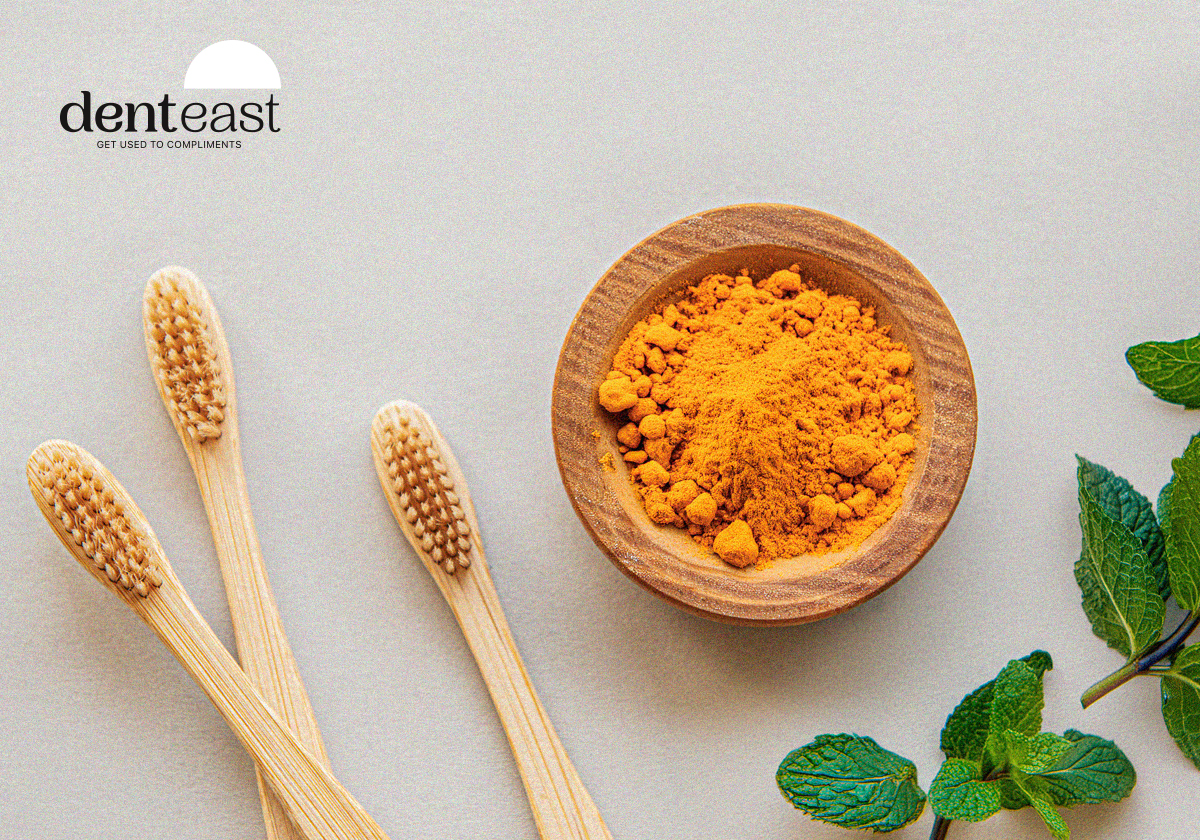SPECIALS: $189 new patients special | 159$ Whitening Kit
Natural Oral Care Remedies: Traditional Solutions for “Modern” Dental Issues
It’s here: fresh news, dental tips, and insights

In the realm of dental care, sometimes old wisdom offers valuable solutions. This blog post delves into the world of natural and home remedies for common dental issues like toothaches, gum swelling, and bad breath. While modern dentistry provides effective treatments, these natural alternatives can offer temporary relief and complement professional care. Something you can help yourself with, DIY until you see the dentist.
I made sure to include only safe and efficient treatments that cause no harm to your teeth, gums or mucosa of your mouth and overall well being.
Toothache Relief
Toothaches can be debilitating, but certain natural remedies can provide temporary relief.
- Clove Oil: A time-tested remedy, clove oil contains eugenol, a natural anesthetic. Applying a small amount of clove oil on a small cotton ball to the affected area can reduce pain. However, be cautious as excessive use can irritate the gums or skin. Use a very minimal amount, pat dry the cotton ball onto a paper towel prior to placing it on the tooth.Leave for 5-10 mins, repeat every few hours until you see your dentist.
- Saltwater Rinse: A simple saltwater rinse can help reduce toothache. It works as an antiseptic to remove bacteria from the infected area. Mix half a teaspoon of salt in a glass of warm water and rinse thoroughly. Saltwater can help to reduce swelling and inflammation in the gums. The osmotic effect of the salt solution helps to draw fluids out from the inflamed tissues, thereby reducing swelling and easing pain.
Saltwater can aid in the healing process of oral wounds or surgical sites (like after a tooth extraction). By reducing bacteria and keeping the area clean, it can help prevent infection and promote faster healing. It also helps to balance the pH levels in your mouth, creating an environment less conducive to harmful bacteria growth. This can help prevent the proliferation of bacteria that can cause infections and exacerbate dental pain.
- Peppermint Tea Bags: Used tea bags of peppermint, slightly warm or at room temperature, can be placed on the affected tooth for soothing effects.
Start by making a strong cup of peppermint tea. Use a peppermint tea bag or fresh peppermint leaves. Steep the tea bag or leaves in boiling water for about 20 minutes to ensure a strong concentration. Let the tea cool down to a warm but comfortable temperature. You don’t want it too hot, as extreme temperatures can aggravate a toothache. If you’ve used a tea bag, you can apply it directly to the affected area for relief. Wait until the tea bag is comfortably warm and place it on the aching tooth or gum area.
The natural properties in the peppermint can help to numb the pain and reduce inflammation.Alternatively, you can use the brewed tea as a mouth rinse. Swish the warm peppermint tea around in your mouth, especially around the area where you’re experiencing pain. This can help soothe the ache and reduce discomfort. You can repeat this process several times a day. It can provide temporary relief from the toothache.
Managing Gum Swelling
Swollen gums are often a sign of gingivitis or other oral health issues. Some natural remedies can help reduce swelling and discomfort.
- Aloe Vera: Known for its anti-inflammatory properties, aloe vera can be applied directly to the swollen gums to soothe irritation. For treating painful gums, it’s important to use pure Aloe Vera gel. You can extract the gel directly from an Aloe Vera plant leaf or purchase pure Aloe Vera gel from a health store. Ensure it’s suitable for oral use and free from additives or aloin. Take a small amount of Aloe Vera gel on your fingertip or a cotton swab. Gently apply it to the affected gum area. Be sure to cover the entire area of the gums that are inflamed or painful.
After applying, you can gently massage the gel into the gums with your finger or swab for a few minutes. This helps in better absorption and increases blood circulation to the gums.
Allow the Aloe Vera gel to sit on your gums for about 15-20 minutes. It will provide a soothing effect and reduce inflammation and pain. After the gel has had time to work, rinse your mouth with lukewarm water to remove any remaining gel. Do not swallow the gel.
- Turmeric Paste: Turmeric has curcumin, which is anti-inflammatory and antimicrobial. A paste made from turmeric and water can be applied to the gums and rinsed off after a few minutes.
This can cause some staining, so be careful, but do not panic, it comes off with a dental cleaning.
Ingredients:
- 1 teaspoon of turmeric powder
- A small amount of water (to create a paste)
Preparation:
- In a small bowl, mix the turmeric powder with a little water. Add the water slowly until you form a paste. The consistency should be thick enough to stick to your gums without dripping.
With a clean finger or a soft toothbrush, apply the turmeric paste directly onto the swollen gums. Ensure that the area is covered well with the paste.Allow the paste to sit on your gums for about 5 to 10 minutes.
This duration gives the turmeric enough time to exert its anti-inflammatory effects on the swollen gums.
After the time is up, rinse your mouth thoroughly with lukewarm water. Ensure all the paste is removed, as turmeric can stain the teeth if left on for too long.
Combating Bad Breath

Bad breath, or halitosis, can be embarrassing and sometimes indicative of deeper dental issues.
- Parsley: Parsley contains chlorophyll, which is a natural deodorizer. Chewing on fresh parsley can help neutralize bad breath.
- Apple Cider Vinegar: A rinse made from apple cider vinegar can help eliminate bad breath due to its antibacterial properties. Dilute with water before rinsing.
Considerations and Cautions
While these remedies can be effective for temporary relief, they are not substitutes for professional dental care. It’s crucial to consult a dentist if symptoms persist, as they can be signs of more serious conditions. Additionally, some natural remedies might not be suitable for everyone, especially those with allergies or specific health conditions.
For instance, clove oil, while effective for toothaches, can cause an allergic reaction in some individuals. Similarly, oil pulling is generally safe but should not replace regular brushing and flossing.
Conclusion
Natural and home remedies can play a supportive role in oral health care, offering temporary relief for common dental issues. However, they should be used judiciously and in conjunction with professional dental advice.
Always remember that these remedies are part of a broader approach to oral health that includes regular dental check-ups, good oral hygiene practices, and a balanced diet.
At the end of the day, the best care for your teeth and gums combines the best of both worlds – the wisdom of natural remedies and the advancements of modern dentistry.
If you have any other suggestions, please let me or my staff at Denteast know and we will do a research on your natural methods of relieving dental issues!
Sincerely,
Dr Sunny
Book A Virtual Consultation
Meet-and-greet Dr. Sunny and plan your personalized dental care journey!
Other Topics/ Read Next

May 28, 2025
5 minutes read
Dr Sunny
You’re never fully dressed without a smile.” – Martin Charnin But what if fine lines, jaw tension, or facial pain overshadow your smile? If you’ve been staring at the mirror lately, wondering how to smooth those worry lines or stop the constant jaw clenching,

May 28, 2025
2 minutes read
Dr Sunny
Reclaim function and aesthetics through our tailor-made, durable dental restorations. If you are dealing with damaged or missing teeth, dental crowns & bridges in Fort Lauderdale offer a reliable solution. These treatments are designed to restore the strength, function and appearance of your smile
